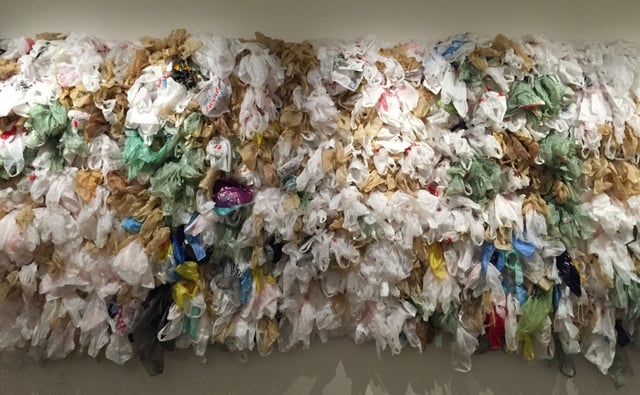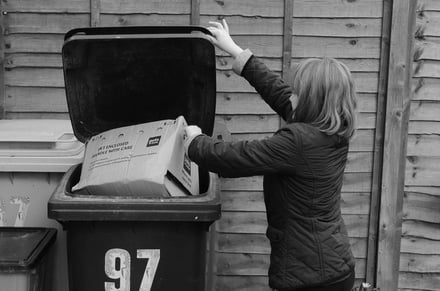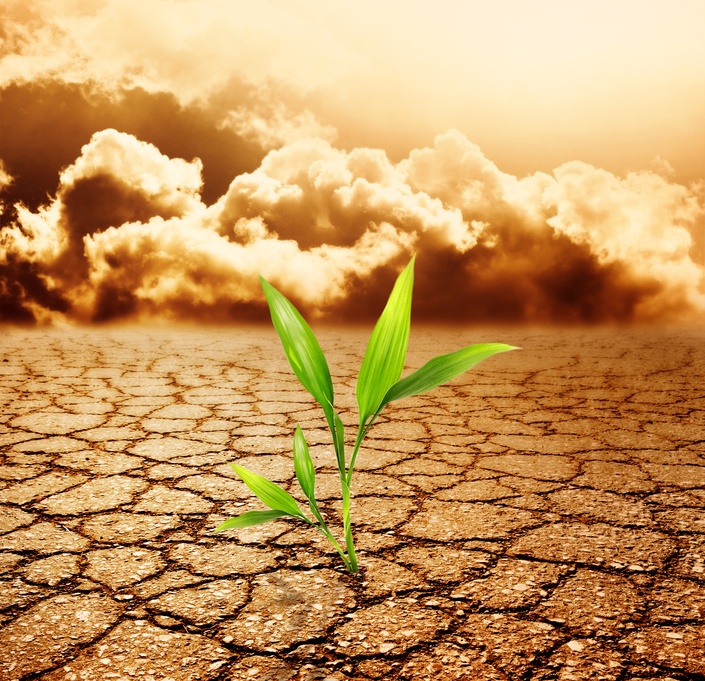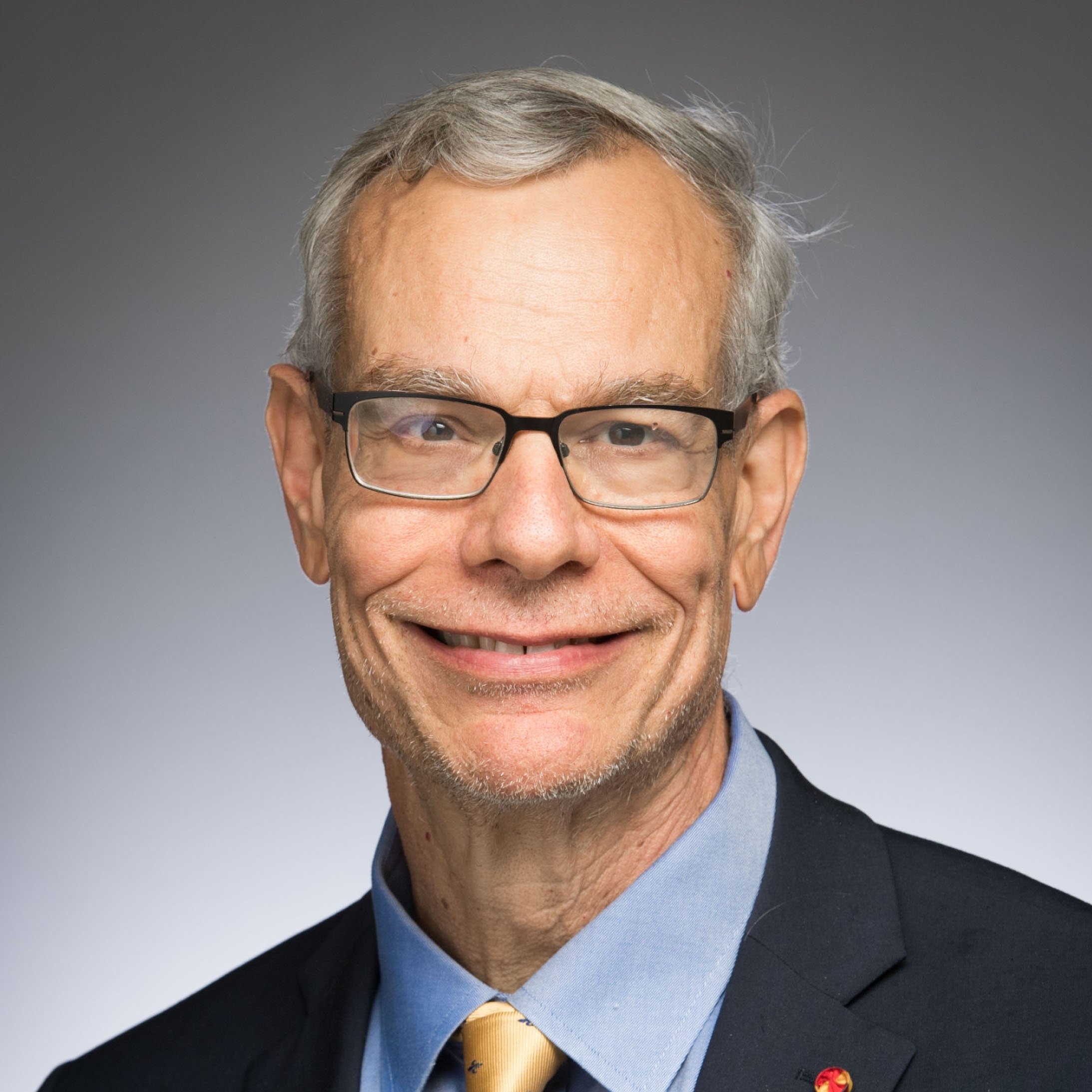I am going to start at the section of Pope Francis’ encyclical Laudato Si’ that I found most troubling and work up from there. I must say that since there are a lot of troubling sections, it was hard to choose, but that being said, here is my pick:
People may well have a growing ecological sensitivity but it has not succeeded in changing their harmful habits of consumption which, rather than decreasing, appear to be growing all the more. A simple example is the increasing use and power of air conditioning. (§55)
This is troubling to me because it corresponds to me exactly. I think it is fair to say that I have a “growing ecological sensitivity,” yes, even me, and yet I feel absolutely addicted to air conditioning and my addiction “appears to be growing all the more” as I get older. No passage impressed itself on my reluctance to change as much as this one. It made me feel the “summons to [the] profound interior conversion” that the “ecological crisis” represents (§217), and how much of a “living sacrifice of praise” it would require of me to receive the “ecological conversion” Pope Francis talks about into my heart (§220, citing Rom 12:1).
Then, however, I read this passage: “Yet all is not lost” (§205). Wow, I thought, all is not lost! And, reading a little farther, it got even better: “Human beings, while capable of the worst, are also capable of rising above themselves, choosing again what is good, and making a new start, despite their mental and social conditioning” (ibid.)—though I found myself thinking, maybe that is true for mental and social conditioning, but for air conditioning?
 Finally, I got to this passage, and once again felt lifted from despondency: “There is a nobility to care for creation in little daily actions . . . ways of acting which directly and significantly affect the world around us,” and these did not involve air conditioning but sounded like things I could possibly do:
Finally, I got to this passage, and once again felt lifted from despondency: “There is a nobility to care for creation in little daily actions . . . ways of acting which directly and significantly affect the world around us,” and these did not involve air conditioning but sounded like things I could possibly do:| Photo: Alan Davey; CC BY-NC-ND 2.0. |
avoiding the use of plastic and paper [hence reading this document off my computer], reducing water consumption, separating refuse, cooking only what can be reasonably consumed, showing care for other living beings, using public transport or carpooling, planting trees, turning off unnecessary lights, or any number of practices. (§211)
I started to plunge into despondency again, though, because I was thinking, well, in the face of the massive changes in industrial practice that are needed, and in the face of the political challenges working against change, what do these little works of environmental mercy towards “our sister, Mother earth” matter? And then, Pope Francis to the rescue: “Reusing something instead of immediately discarding it, when done for the right reasons, can be an act of love which expresses our own dignity” (§211). And, he continues,
We must not think that these efforts are not going to change the world. They benefit society, often unbeknownst to us, for they call forth a goodness which, albeit unseen, inevitably tends to spread. (§212)despondency again, though, because I was thinking, well, in the face of the massive changes in industrial practice that are needed, and in the face of the political challenges working against change, what do these little works of environmental mercy towards “our sister, Mother earth” matter? And then, Pope Francis to the rescue: “Reusing something instead of immediately discarding it, when done for the right reasons, can be an act of love which expresses our own dignity” (§211). And, he continues,
These passages reminded me of two passages from one of the Americans that Pope Francis had singled out for admiration in his speech to the U.S. Congress in September 2015, namely, Dorothy Day, in her introduction to her biography of Thérèse of Lisieux. She explains that she wrote it to “reach some of the 65,000 subscribers to The Catholic Worker, many of whom are not Catholic and not even ‘believers,’ to introduce them to a saint of our day” in order to overcome the “sense of futility in Catholics, men, women, and youth, married and single, who feel hopeless and useless, less than the dust, ineffectual, wasted, powerless.”[1]
In other words, those who have lost a sense of their own dignity in the face of powerful and impersonal forces that declare their lives wasted and their identity as less than the dust. This sense of powerlessness came in part from environmental issues, as Dorothy had later in the text noted: “At a time when there are such grave fears because of the radioactive particles that are sprinkled over the world by the hydrogen bomb tests and the question is asked, ‘What effect they are going to have on the physical life of the universe?’ one can state that this saint, of this day, is releasing a force, a spiritual force, upon the world to counteract that fear and that disaster. We know that one impulse of grace is of infinitely more power than a cobalt bomb”[2]—in Pope Francis’ terms, such “goodness, albeit unseen, tends to spread” and can indeed “change the world.”
I began to think about what this might mean. Perhaps one thing it means is that if one is always expecting someone else to solve these problems, someone conveniently distant from oneself—vague impersonal forces such as “global politics,” “global economics,” etc.—one is always avoiding the “sacrifice,” and thus the personal conversion, that can actually change or renew a culture. And Francis does underscore that this is at bottom a cultural issue. He says, for example:
Our difficulty in taking up this challenge seriously has to do with an ethical and cultural decline which has accompanied the deterioration of the environment. Men and women of our postmodern world run the risk of rampant individualism and many problems of society are connected with today’s self-centered culture of instant gratification. (§162)
Also:
We should not think that political efforts or the force of law will be sufficient to prevent actions which affect the environment because, when the culture itself is corrupt and objective truth and universally valid principles are no longer upheld, then laws can only be seen as arbitrary impositions or obstacles to be avoided. (§123)
In addition,
humanity has changed profoundly, and the accumulation of constant novelties exalts a superficiality which pulls us in one direction. It becomes difficult to pause and recover depth in life. (§113)
And yet, Francis insists, “An authentic humanity, calling for a new synthesis, seems to dwell in the midst of our technological culture, almost unnoticed, like a mist seeping gently beneath a closed door” (§112). It is this renewed humanity that must be the basis for “a distinctive way of looking at things, a way of thinking, policies, an educational program, a lifestyle and a spirituality which together generate resistance to the assault of the technocratic paradigm” which would reduce reality to the material and the solutions to the technological (§111).
If one is always expecting someone else to solve these problems, someone conveniently distant from oneself . . . one is always avoiding the “sacrifice,” and thus the personal conversion, that can actually change or renew a culture.
Perhaps, then, we should take a closer look at the potential contained in the embrace of the small environmental works of mercy noted above. Grace, though it elevates nature, does not eliminate nature and is not magic, and neither Dorothy Day nor Pope Francis, both following Thérèse of Lisieux, are talking about some kind of magic when they say that small practices can change the world. First of all, if one begins these practices, which do not require one to shut off the air conditioning (at least not right away!), one does indeed begin to recover a sense of one’s own dignity as an agent, and an agent acting out of love, for the common good.
 |
| Photo: Steven Leith; CC BY 2.0. |
Wouldn’t that be the seed of a renewed community, one which has a kind of new unity in a recovered sense of dignity, strengthened even more by the growing awareness that “one is capable of deep enjoyment free of the obsession of consumption” (§222)—the seed of a community experiencing together the first moments of the “ecological conversion” Francis had mentioned, founded precisely on these small works of mercy toward “our common home,” sister Mother Earth? Wouldn’t the premise of such direct, personal action—which does indeed seem insignificant to the point of being laughable—be that “an integral ecology calls for openness to categories which transcend the language of mathematics and biology, and take us to the heart of what it is to be human” (§11)? Surely an openness to categories which transcend the language of mathematics and biology is necessary not only to recovering a sense of our own dignity as agents, but a fortiori of an “appreciation of the immense dignity of the poor” (§158), which, the encyclical says, is “an ethical imperative essential for effectively attaining the common good” (ibid.).
Without a “sound ethics, a culture and spirituality genuinely capable of setting limits” (§105), which can only mean de-centering the excessive, tyrannical and distorted anthropocentrism, we lose our freedom and willingly discard our own dignity.
If the blood of the martyrs is “seed” according to Tertullian in a famous phrase, it is not because there is anything magical about blood, but because implied in the willingness to shed one’s blood is a belief in something that makes the sacrifice worth it, to wit, resistance to idolatry and to the political community that is formed around idolatry insofar as it is so formed. As I have mentioned and indeed emphasized, we are not right now talking about martyrdom—or worse, not to make too much of a point of it, giving up air conditioning—but there is nevertheless an issue in common: the issue of witness implied in a sacrificial practice, and indeed the witness against the formation of a political community around idolatry, namely, in this case, the “unrestrained delusions of grandeur” (§114) that are constitutive of what Francis has called an “excessive anthropocentrism” characteristic of modernity (§116). This “tyrannical anthropocentrism unconcerned for other creatures” (§68), this “distorted anthropocentrism” (§69), is, paradoxically, unable to resist the “reductionism which affects every aspect of human and social life” (§107) because it is arbitrary, as noted—a delusion of grandeur based upon an ideology of progress that is really an ideology of power, the ideology that “every increase in power means ‘an increase of “progress” itself’” (§105, citing Romano Guardini), and that human beings are completely autonomous. Human freedom becomes abstract, simply the formal possibility of choosing, that is, of exercising power as one is able, but this means, as Francis very memorably puts it, “our freedom fades,” because it ends up being “handed over to the blind forces of the unconscious, of immediate needs, of self-interest, and of violence. In this sense,” he continues, “we stand naked and exposed in the face of our ever-increasing power, lacking the wherewithal to control it” (§105).
In one of the most striking sentences of the encyclical, Francis baldly states, “Never has humanity had such power over itself, yet nothing ensures that it will be used wisely” (§104). Without a “sound ethics, a culture and spirituality genuinely capable of setting limits” (§105), which can only mean de-centering the excessive, tyrannical and distorted anthropocentrism, we lose our freedom and willingly discard our own dignity. Nor will purely pragmatic considerations come to our rescue here, for pragmatism is only a subset of the language of power and leads inevitably to what Pope Francis calls “practical relativism” (§122). The paradox of tyrannical anthropocentrism is that, as an ideology of power, it reduces human beings to the same level as all other beings, depriving them of “their unique worth,” an “obsession with denying any pre-eminence to the human person” such that “more zeal is shown in protecting other species than in defending the dignity which all human beings share in equal measure” (§90).
As an ideology of power, excessive anthropocentrism also entails “thinking we have absolute power over our own bodies,” for this “turns, often subtly, into thinking that we enjoy absolute power over creation” (§155). By contrast, “learning to accept our body, to care for it and to respect its fullest meaning, is an essential element of any genuine human ecology” (ibid.), which here means not only an ecology of the human being, but of an ecology overall which is properly humanistic. The reason for the paradox that an excessive and even tyrannical anthropocentrism results in a devaluation and reduction of the human person is that it is, as noted, an ideology of power, and to put limits on power you have to have an anthropology which can state what those limits are in terms that are not simply pragmatic, which can say what is the “meaning” of the human body and indeed assert that it has meaning. We would have to admit there is an “authentic” humanity and, by contrast, an inauthentic one.
By using theological language to embody, incarnate, animate, and articulate a critique of a power structure that often hides itself as such . . . he is interpreting it to the culture at large, letting it see that indeed, it has a stake in people who use this language and who act on it.
And by such paths Pope Francis backs his reader not only into an anthropology, but a theology. “We are not God,” Francis states laconically in the sections where he is exposing the “tyrannical anthropocentrism” for what it is: an idolatry (§67). In this way, I think of Laudato Si’ as an apologetic document. Isn’t idolatry the worship of idols? Who does that now? Or, isn’t any religion an idolatry because all and any God or Gods are false? Isn’t secularism, understood either as an official or an “in-effect” atheism, the neutral position, at very least?
But “science and technology are not neutral” (§114), though formally and officially a-theistic. Francis is not arguing that societies must officially adopt a theology. He knows very well, and states explicitly, that not everyone he is addressing is a believer, since he intends, he says, “to address every person living on this planet” (§3), and yet he also states explicitly that he is speaking out of our Catholic tradition of faith, as “the Church’s social teaching” and from “Christian spiritual experience” (§15). By working in this way, by using theological language to embody, incarnate, animate, and articulate a critique of a power structure that often hides itself as such—but without reducing the theological language simply to such a critique—he is interpreting it to the culture at large, letting it see that indeed, it has a stake in people who use this language and who act on it. Part of this is exposing the ways in which the tradition has itself been inauthentically interpreted as though, in fact, it did back up an excessive anthropocentrism that is at bottom an idolatry.
In the end, though, the encyclical is to the faithful, to begin to form their lives around practices that represent the sacrifice of this anthropocentrism. An apology ad extra does nothing if ad intra there is not a vigorous commitment to the practices that bear witness to something higher, to the Creator, and to what that word, and the word “creation,” means. It is this practice and this witness that can change a culture, despite its seeming insignificance. What if we took up the invitation to the small works of mercy extended to the most vulnerable of the vulnerable poor, “the earth herself, burdened and laid waste . . . among the most abandoned and maltreated of our poor,” who “groans in travail” (§2, citing Rom 8:22)? What if we decided to become living interpretations of what it means to call the earth, not a goddess, but “Sister, Mother Earth” (§1)? What if parishes decided to give up the universally present Styrofoam coffee cups after Mass, explaining in homilies that, like the human soul, they have a beginning but no end? Pope Francis is telling us that it is communities of “ecological conversion” based on the Catholic faith that can present to our culture an opportunity for dialogue, and within that dialogue, evangelization, that is credible to people and does not seem like an invitation to superstition or magic, but instead an interpretation of the true faith. Apologetic implies witness. Witness is irreducibly personal, and as such, educational. And perhaps in the end we’ll find a way to keep the one thing that would make this witness worse than a martyrdom—our air conditioning.
![]()
Editors’ Note: This essay was originally delivered as an address during the conference “Laudato Si’ and the Protection of ‘Our Common Home’: Faith and Science in Conversation” at The Catholic University of America on October 26, 2015.
Featured Image: O’Leary’s (Approaching Science and People); CC BY 2.0.
[1] Dorothy Day, “Preface” in Therese (Notre Dame: Fides Publishers Association, 1960), xii.
[2] Ibid., 175.



